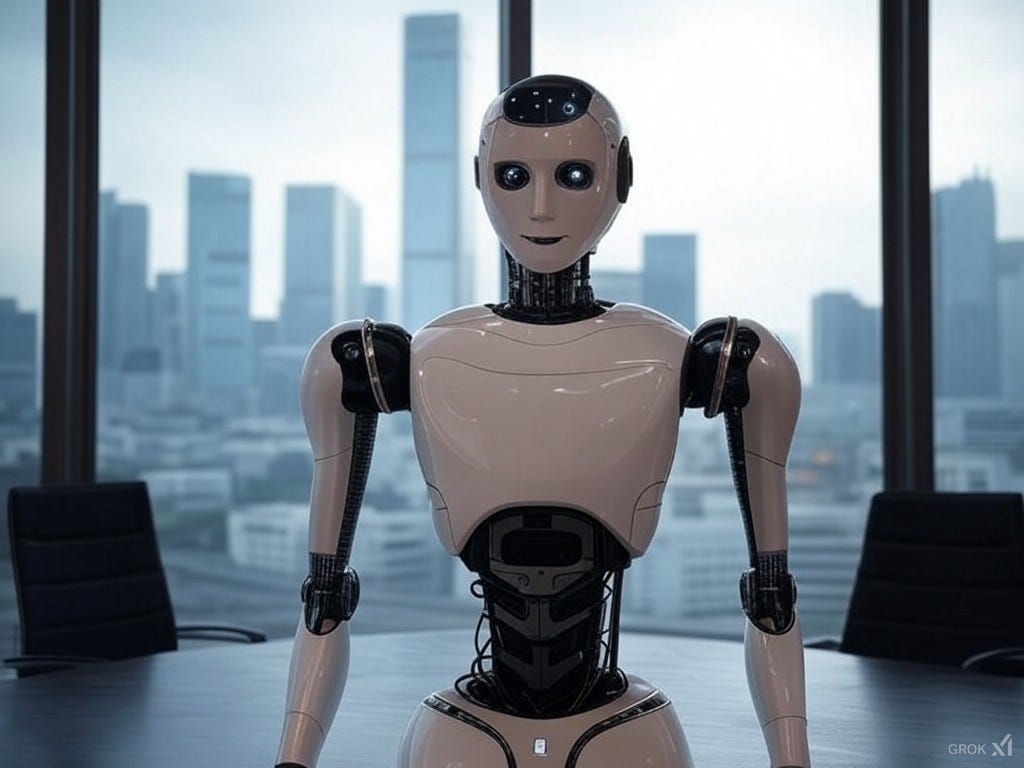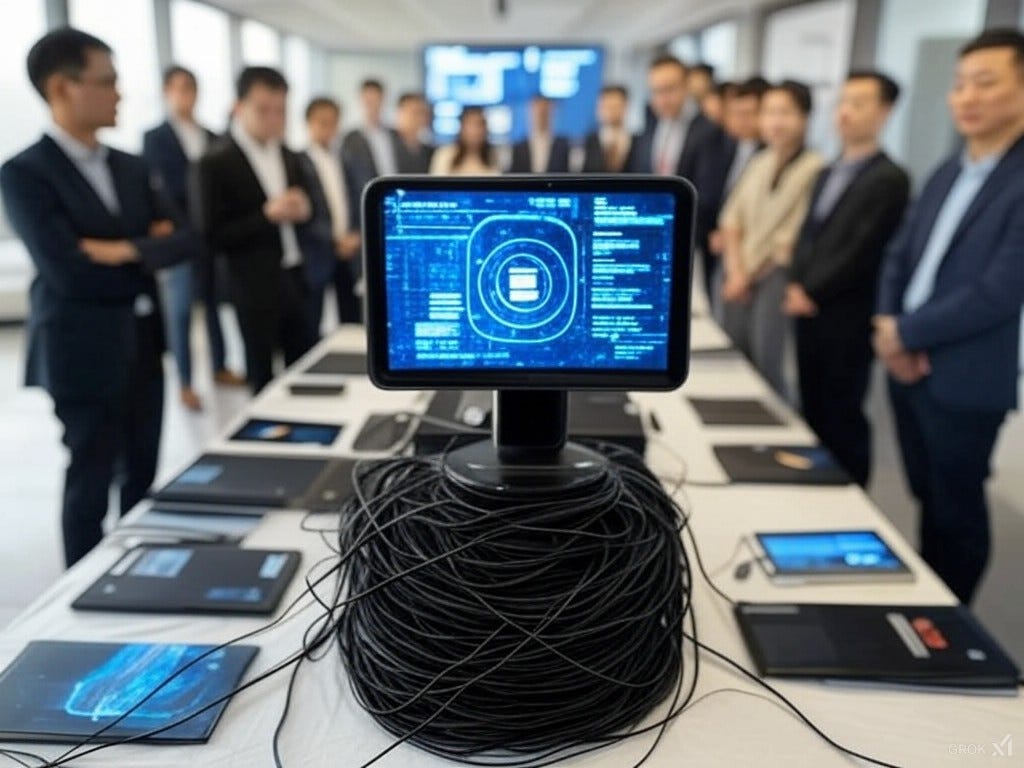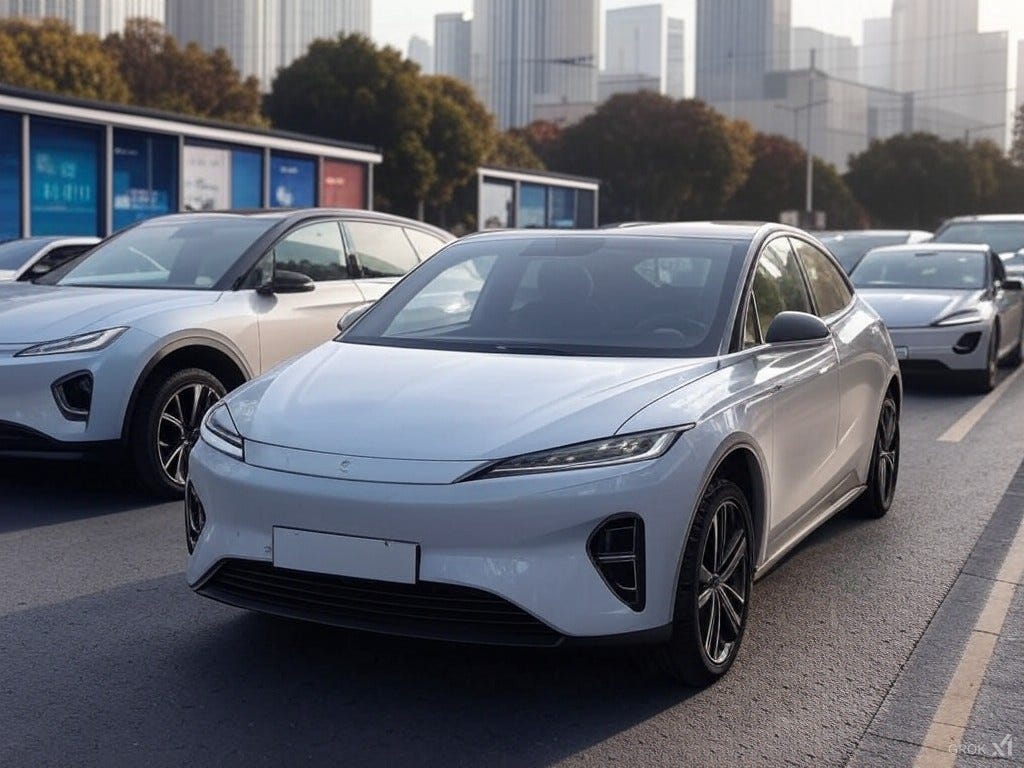DeepSeek AI and the Rise of Multipolarity
DeepSeek AI confirms we are entering the Tsushima Straits rather than a Sputnik moment.
Good Morning - DeepSeek AI confirms the rise of the multipolar world is upon us but we are entering the Tsushima Straits rather than a Sputnik moment.
What is innovation? At a minimum it involves disruption that stimulates dynamic, sustainable change in the form of new goods, products or modes of production. Globalist elites have asserted that innovation can ONLY emerge from Anglo-centric "free markets" inside Neo-Liberal democracies.
Such criticism is in tune with Paul Krugman's famous essay: "The Myth of Asia's Miracle." Then, Krugman asserted the Asian Tiger gains came from "inputs" (capital investment) but fell short of "outputs" (innovation).
DeepSeek caps a multi-decade run that has seen China become a leading industrial and innovative power.
DeepSeek caps a multi-decade run that has seen China become a leading industrial and innovative power, as it has been in the past. Today, China is a leader in EVs, battery tech, nuclear infrastructure, industrial robots, biotech and now AI.
Likewise, DeepSeek has blindsided Silicon Valley Tech bros who assumed with religious faith that authoritarian "China can copy but it cannot innovate." A good analysis of DeepSeek concluded otherwise. Deepseek "rethought everything from the ground up...It breaks the model of 'only huge tech companies can play in AI.'"
Many have mistakenly called DeepSeek a Sputnik moment, which is the wrong analogy. A better one is the Tsushima Straits. Tsushima was the landmark sea battle of the Ruso-Japanese War. Japan scored a decisive naval victory because of the transformation of Japanese industry, modern tactics, and the skilled use of new technology (radio). The victory shocked Western powers who believed Asians could not compete on the battlefield.
The Tsushima Straits shocked Western powers who believed Asians could not compete on the battlefield.
DeepSeek has unequivocally demonstrated China's dynamism as a global economic power. As Pepe Escobar recently penned, "everything was developed locally, via scores of PHDs from the top Chinese universities - Peking, Tsinghua, Beihang – and not American Ivy League experts."
DeepSeek also exposes a short-circuit in America's faltering economy beyond Nvidia’s overvaluation. Basically, China has a national industrial policy coordinated from the top, financed by the provinces, and implemented by rabidly competitive entrepreneurs at local levels.
DeepSeek also exposes a short-circuit in America's faltering economy beyond Nvidia’s overvaluation.
Meanwhile, in America, innovation has been stalled since perhaps the 90's (See Robert Gordon: "Is US Economic Growth Over?") Such stagnation has occurred for many reasons not least of which is a political system lacking any strategic alignment between government and industry to support innovation.
Strategic alignment must begin with structural reforms to DC's federal debt, specifically overhauling DOD's broken procurement system and entitlement reform. As Ray Dalio warns, If we do not, the imminent debt spiral will cause an "economic heart attack."
Without major reforms, public spending will continue to "crowd out" private investment better redirected to the comprehensive modernization of America's infrastructure and industrial-technological suite.
As a corollary, Wall Street and Silicon Valley like the USG have become parasites eating away at real economy like hyenas sucking on bone marrow. As a result, we get Ponzi finance like SPACs but we do not get new refineries, nuclear power plants, natural gas pipelines, or fabrication plants.
Innovation demands the reconstruction of America's factory floor from the ground up, which will take years, perhaps a decade or more, assuming we implement a national industrial strategy. Ignoring structural reforms in favor of trade wars may actually accelerate industrial decline.
Innovation demands the reconstruction of America's factory floor from the ground up.
Tariffs can and should be employed surgically but promoting the External Revenue Service (ERS) as a bailout to America's fiscal meltdown is delusional and an impediment to real growth if it worsens inflation or delays structural reform.
USG reorg is the first step. Trump has begun the process but so far his policies lack a reformist vision and refuse to tackle structural debt issues. Strategic realignment in favor of industry and away from Wall Street and Silicon Valley is the next step. The correct sequence should be: retrench fiscally, reorganize federally, and rebuild industry comprehensively.
The Chinese model has major flaws, especially its dependence on Beijing's pro-growth governance, which is subject to change. There is also rampant corruption, tension between provinces and Beijing, a popped real-estate bubble, and hundreds of millions of poor Chinese excluded from "common prosperity."
That said, they have successfully employed a multi-decade strategy to build world-class manufacturing, global supply chains, and innovative companies in cutting edge industries, what Eric Yeung calls, "China IP."
DeepSeek proves they have achieved that goal. If we want to climb out of the fiscal abyss and get back to a sure footed dynamic economy we must rebuild from the ground up based on a strategic vision from DC just as Beijing has.
We are transiting through the multipolar straits to a new global economy. Time for the West to adapt.
Stay liquid, stay alert.










